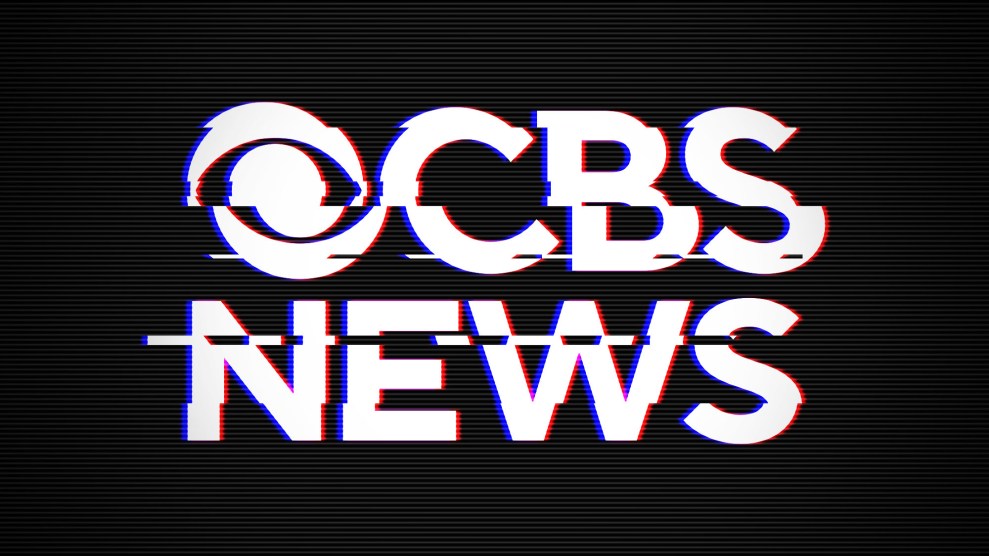
Photo: Getty Images
MoJo 100 | Hard Money 100 | Soft Money 100
Legendary Republican operator Mark Hanna observed roughly a century ago that, “There are only two important things in politics. The first is money and I can’t remember the second.”
In the 21st century, ironically in the wake of historic campaign finance reform, money continues to flow like oxygen itself, utterly vital to all elected officials. Good, old-fashioned campaign cash is as old as the Republic itself, and politicians have almost never succeeded without an abundance of it. Of course while there is much more to politics than merely money – the candidate’s style and appearance, past record, policy positions, broad theme message, organization, etc. – it has always been an essential ingredient in American politics. The gritty reality of obtaining those greenbacks, the price of power, and exactly what the donors expect and get in return have always been controversial and difficult for candor-challenged candidates. Indeed, these are hair-in-the-soup questions no one wants to answer.
For example, it is a little known fact that in the momentous presidential election of 1860, our ultimate icon of moral probity and integrity, Abraham Lincoln, outspent his opponent, Stephen A. Douglas, by a two-to-one margin, expending $100,000. Lincoln was substantially supported by the railroad industry and it was during his tenure as president that the federal government issued railroad land grants allowing the companies to acquire the most acreage in U.S. history.
In 1932, it was well understood that Democrat Franklin Roosevelt favored the outright repeal of Prohibition and restoring liquor control to the states. And after just three weeks in the White House, Roosevelt signed the Beer Bill and by year’s end, it was last call for the Eighteenth Amendment. In the 1936 election, brewers and distillers gave FDR’s Democratic Party $73,000 and only $6,000 to the Republicans.
Special interests have made millions of dollars from these and so many other public policy decisions over the years, and as the power, size and authority of federal and state governments have grown, so too has the bounty available to various economic interests increased exponentially. Occasionally in our history, the level of unmitigated greed and excess – and unfettered access to and influence over government officials – is so outrageous that the American people become enraged and demand reform. It happens and is sometimes effective, at least for a while, until the powerful interests game the new rules. Over the past century, reform and deform have been like a seesaw, up and down between public-interest democracy and unbridled capitalism.
After Watergate, the most serious political scandal in U.S. history – the only scandal to result in the resignation of a sitting president – the Federal Election Campaign Act was dramatically signed into law. Newly sworn President Gerald Ford said, “The times demand this legislation,” which created the Federal Election Commission, set campaign contribution and expenditure disclosure requirements, and specified limits on what individuals, political action committees and party committees could give to federal campaigns. Virtually all of the states emulated this law in some way, endorsing the broad principles of sunshine and transparency in political campaigns.
Over the years, like rats in the eaves, accountants and lawyers for the two political parties and various courts quietly gnawed away at the laws and regulations, and by the 1990s, special interest influence had gotten embarrassingly out of control. During the Clinton presidency, for example, to an unprecedented extent, major Democratic Party donors were serviced in many ways, including overnight stays in the White House “Lincoln Bedroom” and Camp David, but also trips on Air Force One, Marine One, Air Force Two and Marine Two (the latter two are the Vice President’s aircraft) more than 300 times! During that same time frame, the Party accepted millions of dollars in illegal campaign contributions from overseas donors, many of whom met personally with the President. But when the Senate Governmental Affairs Committee attempted to investigate the 1996 election abuses, more than 45 potential witnesses fled the United States or refused to testify by invoking their constitutional rights against self-incrimination. Ultimately, no one of any stature in the Democratic Party, the White House or the Clinton-Gore campaign was ever charged with a crime.
In his last two hours as President, Clinton pardoned 140 people, including several who had been convicted of political corruption during his Administration, and a disgraced international fugitive named Marc Rich who years earlier had fled the U.S. after his indictment for fraud, racketeering and income tax evasion. Rich’s ex-wife had plied Clinton with roughly $1 million in contributions to his campaigns, his political party and his presidential library. Despite the hullabaloo over this pardon in particular, nothing ultimately happened. It was all entirely legal.
Aided by these blood-boiling outrages, the stratospheric sums of campaign cash collected by George W. Bush — the first political candidate in American history to raise $100 million in a single election cycle — and especially the Enron, WorldCom and other corporate scandals and the Nineties neutering of the regulators they represented, the Bipartisan Campaign Reform Act of 2002 was passed by both houses of Congress and signed into law by George W. Bush on March 27th. The new law, upheld by the Supreme Court, most notably bans unlimited donations to national political parties, those six- and seven-figure checks known as “soft money.” In the 1999-2000 cycle, the two major parties raised about $500 million from corporations, labor unions and wealthy individuals, double the amount raised four years earlier.
The new law was hardly embraced by the mercenary culture of Washington. Indeed, the Commander-in-Chief did the ‘ole Texas two-step. There was no White House ceremony and no speech by the President; instead, a White House spokeswoman told curious reporters that “the manner in which the president signed the campaign finance reform into law was consistent with his views on the legislation.”
Bush promptly left the Oval Office that morning and flew off on Air Force One to Greenville, South Carolina, for a $1 million fundraising event, and then on to Atlanta and Texas to raise more campaign cash. How fitting that he would give a speech that day to rich contributors at an exclusive fundraising event, while remaining publicly silent on the subject of corruption, democracy, and signing into law the first significant political reform legislation since the Watergate reforms a quarter century earlier.
So where are we today? While campaign finance reformers nationwide plan new initiatives, emboldened by the Supreme Court decision, candidates and their favorite special interests are out there raising more money than ever before. Partly because the direct contribution limit for individuals was doubled from $1,000 to $2,000, George W. Bush will pass the $200 million mark, collecting more than half a million dollars a day, which doesn’t exactly come from backyard barbecues (see Welcome to Rangerville). Democratic nominee John Kerry will be lucky if he raises a third of that.
In addition, vested interests and their favorite political parties have found another scheme, nonprofit political organizations, and they are raising and spending hundreds of millions of dollars between now and the election, saturating the airwaves with paid, “independent” ads (see The Billionaires’ End-Run). Storefront political hit squads can be created overnight, substantially unaccountable, well-funded “cutout” organizations you’ve never heard of to quickly, effectively and virtually anonymously influence electoral outcomes. In the 21st century in the United States of America, it is still astonishingly easy to assassinate a political opponent’s character, with little or no accountability or basis in fact.
Beyond the political muggings and the money chase, We the People have become an afterthought of those whom we have put in office. Let us not forget that 100 million Americans, half the eligible electorate, routinely do not vote in federal elections. 96 percent of the American people do not contribute to any politician or political party, and a check of $2,000 comes from one-tenth of one percent. A narrow, wealthy sliver of society — including companies, labor unions and individuals with a direct financial stake in specific government policies and decisions — sponsors our representatives.
As Woodrow Wilson despaired many decades ago, “The government, which was designed for the people, has got into the hands of their bosses and their employers, the special interests. An invisible empire has been set up above the forms of democracy.”
So this problem is not going away anytime soon, if ever, but in the meantime, don’t we owe it to ourselves to at least know who is mucking around our democracy, the real powers that be behind the candidates and their parties?
















